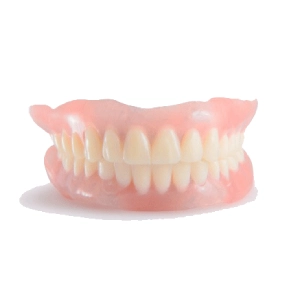
Patient Info
Dental Implants
Cosmetic Dentistry
General Dentistry
Whitening dentures can significantly enhance the appearance and confidence of individuals who rely on them. Learning how to whiten dentures is essential to maintaining oral hygiene and aesthetics. Whether you're new to denture care or seeking ways to revitalize your smile, understanding the techniques and best practices for whitening dentures is paramount.
This comprehensive guide will explore various methods, tips, and considerations for achieving brighter, more vibrant dentures.
Before diving into the whitening process, it's important to grasp the common causes of denture stains. These stains can result from various factors, including:
Consuming highly pigmented foods and drinks like coffee, tea, red wine, and berries can contribute to denture discoloration over time.
Smoking or chewing tobacco can result in persistent stains and yellowing of dentures.
Improper cleaning techniques or infrequent maintenance can allow plaque and bacteria to accumulate, resulting in discoloration.
As dentures age, they may naturally become dull or discolored due to wear and tear.
There are several methods to whiten Dentures. Some of them are given below:
Specialized denture cleansers are designed to remove stains and debris from dentures effectively. These cleansers typically come in tablet or solution form and should be used as directed.
Make a paste by mixing baking soda with water and softly brushing your dentures using a soft-bristled toothbrush. Baking soda serves as a gentle abrasive, aiding in the removal of surface stains.
Soaking dentures in a diluted hydrogen peroxide solution can help whiten and disinfect them. However, it's essential to rinse thoroughly afterward to remove any residue.
Soaking dentures in a solution of vinegar and water can help remove stubborn stains. Vinegar is a natural cleanser that helps restore the brightness of dentures.
Various over-the-counter denture whitening products are available, including whitening gels, creams, and sprays. These products are specifically formulated to brighten dentures and restore their natural luster.

Tips for Effective Denture Whitening:
Always follow the manufacturer's instructions when using denture whitening products to ensure safety and effectiveness.
Avoid using abrasive materials such as harsh toothpaste, bleach, or abrasive brushes, as they can damage the surface of dentures.
Maintain a consistent denture cleaning routine to avoid stains and discoloration from occurring in the first place.
Schedule regular dental check-ups to assess the condition of your dentures and seek professional advice on whitening options.
Whitening dentures can breathe new life into your smile and boost your confidence. By understanding the causes of denture stains and employing effective whitening methods and tips, you can achieve a brighter, more radiant smile. Remember to prioritize regular cleaning and maintenance to prolong the longevity of your dentures and ensure optimal oral health. With the right approach to whitening dentures, you can confidently showcase your beautiful smile for years to come.
Enhance Your Smile Today! Book Your Appointment at Springhill Dental Health Center, Mobile, AL. For new patients, call (251) 265-7808. For existing patients, call (251) 343-1521 to secure your consultation.
It's best to avoid using regular toothpaste on dentures as they can be abrasive and damage the surface. Stick to denture-specific products for safe whitening.
The frequency of whitening depends on factors like your habits and the severity of stains. Follow product instructions and consult your dentist for personalized guidance.
Baking soda paste, vinegar soak, and hydrogen peroxide solution are common home remedies for whitening dentures. However, use them cautiously and consult your dentist for recommendations.
My visit was incredible. I had my “All on Four” appliances cleaned, and it was a painless and thorough experience. Dr. Scott and all his staff are very friendly. During the cleaning, Mary was gentle and let me know everything she was doing and how it would feel. She gave me tips on how to clean my implants/appliances better and gave me a small brush to do the underside more effectively. Dr. Scott and Mary suggest cleanings take place every 3 months so I will be back in December.

Dr. Byron Scott is a highly-trained and accomplished dentist. He attended The University of Alabama School of Dentistry and subsequently completed numerous Advanced Studies and Trainings. Dr. Scott is Board-Certified by The Academy of General Dentistry and has earned Mastership status (MAGD), an honor shared by only 1% of dentists. He has numerous memberships and associations, including Diplomate status with The American Board of Oral Implantology (D-ABOI) and The International Congress of Oral Implantologists (D-ICOI). Overall, Dr. Scott has dedicated his life and career to helping patients improve their oral health through expert dentistry. His goal is to help each patient keep their smile healthy, attractive, and comfortable for the duration of their lifetime.
